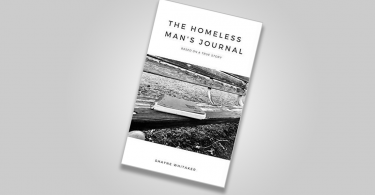As an English Literature student, most of my degree involves reading total obscurities with no Wikipedia page, or droning relics from Ye Olde Dayes. It’s especially unbearable right now, in the middle of assignment and exam period, where I have no free time at all to revisit my favourite novels, or pick up ones I actually have an interest in (ignore the fact that I apparently have enough free time to moan about this.) However, over my three years of studying there have been some glimmers of hope among my course reading lists, books that I absolutely adored and probably wouldn’t have found out about otherwise, so even if I will be eternally haunted by debt repayments, at least I can thank university for something. Here are some of those gems which spurred me on when everything else seemed bleak, and I would wholeheartedly recommend you to check out – assuming you are not currently drowning in work, either.
The Duchess of Malfi by John Webster
Normally, I’m not a huge fan of studying plays – Shakespeare being the exception – since they are fundamentally intended to be performed rather than read. As such, they tend to lose their punch when experienced in written format. The Duchess of Malfi is the exception to this. It tells the tragedy of the eponymous Duchess who gives her overly possessive brothers the middle finger by going against their wishes and marrying someone significantly below her class. Not exactly an original theme, but this play checks all the right boxes for me in terms of what I want from a dramatic work. Snarky banter? Check. Merciless suffering and unrelenting violence? Check. Powerful female protagonist? Check. Seriously, imagine an upper-class lady wearing sunglasses and riding a skateboard while screaming ‘DOWN WITH THE PATRIARCHY!’ and you’ve pretty much got the general gist of this play. Of course, as a tragedy it does conclude on a depressing note, but that doesn’t detract from the fact that it’s essentially 200 pages of feminism, blood, and people being horrible to each other. What more could you want?
The poetry of E. E. Cummings
Even though I had to spell check my essay constantly to make sure I hadn’t forgotten to type the ‘s’, studying Cummings’s poetry was one of the highlights of second year. He’s like a nineteenth-century version of a Twitter user, in that he completely disregards capitalisation, grammar and basic structure to create little whimsical pearls. Here’s an example:
We’re
alive and shall be:cities may overflow(am
was)assassinating whole grassblades,five
ideas can swallow a man;three words im
-prison a woman for all her now:but we’ve
such freedom such intense digestion so
much greenness only dying makes us grow
E. E. Cummings doesn’t play by your rules. What’s cooler than poems structured completely arbitrarily? Nothing, that’s what. Admittedly, it did get annoying having to format quotations like this, but I’ve yet to find somebody who plays around with language the same way he does. He has such a distinctly dreamy style, like if sweet nothings whispered by the love of your life were transplanted onto paper. That’s possibly the cringiest collection of words I’ve ever written, so I’ll end it there before I become more disgusted with myself.
Hedda Gabler by Henrik Ibsen
Another drama based on a woman driven to despair by the harshness of male dominion? Why, yes, I do have a type. The character of Hedda is one of the greatest dramatic roles in theatre, and with good reason. Bored with her marriage and made restless by the confinement inherent to aristocratic womanhood, Hedda resorts to manipulation in order to get her kicks, and it’s morbidly fascinating to watch, like some kind of literary train wreck. She’s basically a Norweigan version of Cersei Lannister. If that doesn’t sell the story to you then I’m not sure what will. While she is undoubtedly a horrible person, the ending still packs a tragic punch, with the ultimate message that it’s better to die than to have your spirit subjugated.
Image: https://www.flickr.com/photos/huntingtontheatreco
Warm Bodies by Isaac Marion
Warm Bodies will hopefully ring a few bells, since in 2013 it was adapted into a film starring Nicholas Hoult. I did actually watch the film when it came out, and while I enjoyed it, it was a bit too kitschy for me. It had all the potential to be great, telling the tale of a zombie reintegrating back into human society as opposed to being restricted solely to a brain-eating terror, but it just came across as a little cheesy. Hence I was a little weary when it came up on the reading list for a class on contemporary Gothic, because I couldn’t fathom how the mildly peppy movie could be in any way dark or insightful. But at the risk of sounding like a snob, the book was infinitely better. R is one of my favourite protagonists of all time; Marion plunges you headfirst into his heartbreakingly philosophical musings, but he doesn’t skimp on the grisly gore, either, creating a kind of amalgam of The Walking Dead and The Catcher in the Rye. Yes, the ending of the novel is a little cliché – that the power of love can overcome any adversary – but R is, ironically, one of the most genuinely human characters I’ve ever read. I can totally understand why Julie falls in love with him.
The Dark Horse by Marcus Sedgwick
This is a bit of a late addition, since at the time of writing this article I would’ve only finished The Dark Horse about six hours prior. But I was compelled to advocate reading this book the second I read the last sentence. Following a clan of an ancient time, it tells the tale of Sigurd, a boy whose quiet life descends into chaos upon the discovery of a magical stranger with a sealed box. Initially, I wasn’t sold, but the blurb said it features a girl raised by wolves, which instantly improves any story. It’s not an incredibly long book – the chapters on my Kindle were usually only about three pages each – and Sedgwick’s style is fairly simplistic, but it succeeds magnificently in creating an eerie, brooding atmosphere, and is fantastic in its folklore and world-building. I was blown away by how much detail, how many twists and turns, could be compacted into such a short text. It’s sort of like a series of Game of Thrones made minimalist, which is not a compliment doled out lightly.
You know what, it doesn’t matter if you’re swamped with work, you should definitely read all of these books. Right now. Who needs a degree?
You can read about how the A Level English Literature curriculum stole writer Becky Lancashire’s heart by following this link.











